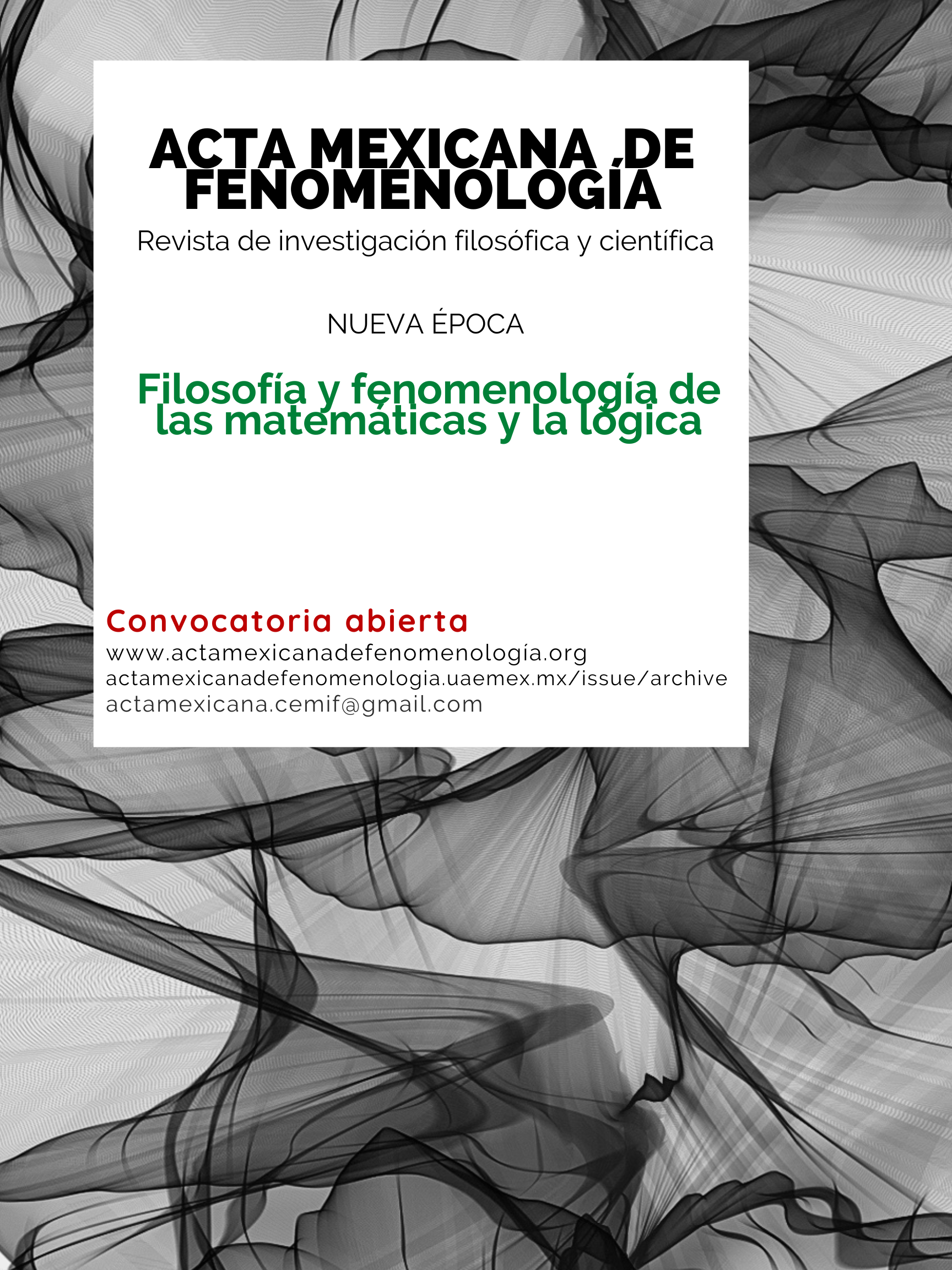
Submission deadline: February 5, 2023

The Phenomenology deals with the analysis of life consciousness from a philosophical perspective. The transcendental phenomenology seeks to find the genesis of the sense of world through scientific radicalism. Being this root of life itself, phenomenology is the philosophical research of basic life structures.
Phenomenology has a long history within contemporary Mexican philosophy history. Antonio Caso may be considered the introducer of phenomenology by using it as a critical tool against positivism, and an instrument to restore metaphysics. We can say that with Caso –and his generation— begins a new phase in Mexican philosophy. This new beginning came at the same time as the introduction of phenomenology in the philosophical studies in our country. José Vasconcelos was, in turn, the most reluctant critic of German philosophy of his time. Different philosophical postures, with their resulting tensions, gave way to a rich debate that gradually helped young Mexican philosophers to adopt phenomenology: Samuel Ramos, José Romano Muñoz, and Eduardo García Maynez.
Phenomenology in México gained momentum through the work and teachings of the so-called "transterrados" (trans-landed) philosophers (term penned by José Gaos): Eduardo Nicol, Gaos, and their disciples in Mexico. The penetration and consolidation of phenomenological philosophy in our country is due mainly to the task of translation and dissemination of "classical" works by German and French phenomenology authors. Gaos translated into Spanish fundamental works on phenomenology, as Sein und Zeit, by Martin Heidegger, and Ideen I (Ideas relativas a una fenomenología pura y una filosofía fenomenológica), by Edmund Husserl. However, once the Spanish school was extinct, and during almost three decades, the cultivation of phenomenology rested almost suspended in Mexico. Courses and publications on phenomenology were scarce. Luis Villoro (disciple of José Gaos) was –during almost two decades– the only serious cultivator of phenomenology in our country. He translated into Spanish one of most important works by Edmund Husserl: Formale und Traszendentale Logik (Lógica formal y lógica trascendental). After him, the phenomenological tradition remained in hands of some few disciples of Villoro, or only one, Antonio Zirión Quijano, whose translation and divulgation work on phenomenology has been fundamental for the continuity of phenomenological studies in Mexico and Latin America, as well as his tireless efforts in forging new generations of phenomenologists.
In the past two decades, a growing interest in the study of phenomenology in our country has arisen. The academies of philosophy, sociology, anthropology and psychology, have at least one line of research in phenomenology. This has favored our call for an International Scientific Committee for this Project. Behind its members, a broad generation of researchers, through their teaching and publishing experience, are forging a new phenomenological type of research. This renovated interest is a global phenomenon. Until now, Universities and Documentary Centers in Germany, France, Italy and Spain, have concentrated almost all research and translation work that, somehow, orients the contemporary European philosophy. Every country brings together phenomenology specialized researchers, whose publishing organisms are open to international collaborations. The Organization of Phenomenological Organizations brings together associations and national webs through projects of research and academical events. The Regional organization founded in our country, the Círculo Latinoamericano de Fenomenología, is the most important collaboration web among researchers of Latin America and American Universities. This same web is used to support the Acta Mexicana de Fenomenología editorial project.
The Acta Mexicana de Fenomenología will be the first specialized publication in our country, and the third in Latin America. This will fill a national and continental vacuum, whose satisfaction will be a motivation for the opening of new local lines of research, encouraging scientific discussion and humanistic production.